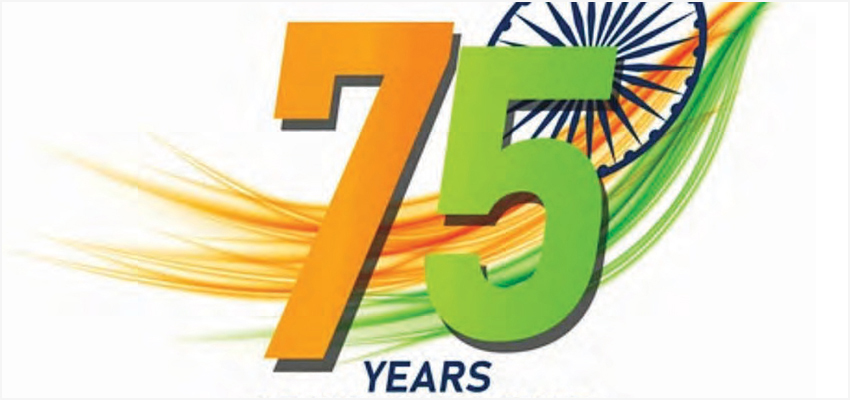Where does India stand today economically, socially and politically, 75 years after Independence? Where should it aspire to go from here in the next 25 years as it touches the milestone of 100 years of Independence in 2047?
Should India become a manufacturing powerhouse to rival China? Or should it stay content with services and become the Information Superpower of the world? What about pursuing new opportunities in agriculture, healthcare and other segments to become the world’s best user of technology to create globally best-in-class industries? Can a new wave of research and innovation be unleashed to transform urban and rural habitats where high-quality education and skills are available to create sustainable livelihoods through employment and entrepreneurship?
At the Pune International Centre, which is arguably one of the best think tanks and a crucible of futuristic thought in the country, the success of our first book “Rising to the China Challenge” and the satisfaction of seeing many of our ideas for the success of India visa vis its belligerent neighbour actually being announced and partly implemented by a confident Government and a surging post-COVID industrial community enthused some of us so much that we decided to go deeper and think about India in the next decade. One of the well-known global thinkers about India and a former Chief Economist at the World Bank, Dr Ejaz Ghani and I were tasked by our leadership, Padma Vibhushans Dr Raghunath Mashelkar and Dr Vijay Kelkar to compile and edit a tome that would open up pathways to India’s future.
Will India be able to achieve the target of a $5 trillion GDP in the foreseeable future? What role will agriculture, manufacturing, mobility and digital India play in accelerating the process? And will there be enablers like planned urbanisation or deterrents like social disharmony and trust deficits that would have to be addressed en route to success? All of us who got down to collaborate in the thinking through and writing of this epic agreed that we would like to see ourselves as proud Indians in an inclusive and democratic society. The book that just got published and is now available on book stories and the internet is the product of that deep thinking and calibrated writing.
Winning in the Next Decade is a compilation of well curated and sequenced chapters by some of the best minds in India. It uses a lens of success to view the past, examine the present and identify torches that can shine into the darkness of the unknown and determine robust pathways for the future. The torchbearers include Harshvardhan Singh, former Deputy Director-General at the WTO, Chairman of KPIT Ravi Pandit, renowned economist Prof Ajay Shah, Abhay Vaidya of PIC and of course Dr Mashelkar and Dr Kelkar. One very heart-warming feature of a milestone year was the ready agreement by very senior Indian citizens like Bibek Debroy, Chairman Economic Advisory Council to the Prime Minister of India and Ronen Sen, former Indian Ambassador to the USA to write endorsements for the book.
For me personally, all the blood, sweat and toil of co-creating the book became worthwhile when tech industry doyen, Narayana Murthy, founder of Infosys wrote a brilliant foreword to the book. Calling out “the challenges, the opportunities and the exciting future that can come our way if we follow the policy prescriptions laid out so lucidly by various authors in the book” Mr Murthy acknowledges “fountainheads of enthusiasm and positivism, and generators of great ideas” and recommends the book to Universities, saying “it will give our young minds some raison d’être for their three to four years of mental gymnastics, devotion and hard work. It will also turn them into enlightened and determined citizens full of enthusiasm to achieve the plausibly impossible for our nation.”
In an era where many millennials and Gen Ys and Gen Zs get their dose of knowledge and learning through social media and the fine art of turning the pages and pondering over a line or paragraph is becoming a forgotten art, books like this may seem like a throwback to a previous era but for people passionate about literature, culture, industry and the future of a great country like India, there is no better time to start thinking and actively planning for their place in the future that all of us aspire to see. A new year has begun, with the world at the proverbial crossroads with the ongoing war in Ukraine, the twin demons of inflation and economic slowdown creating worries about the future of countries and jobs and successful people worried that the future generations may not even enjoy the success and freedoms that they have enjoyed. These are the times when thinkers, visionaries and successful entrepreneurs must come forward to lead the way.
Is India on the threshold of unprecedented global success? Certainly, for “dangerous optimists” like us, all the opportunities are abound and to carry forward the hypothesis laid in our last book, we have to identify sectors where we can lead and overcome structural weakness in industries where we have lagged behind China and the West and show that we have the will and the ability to become numero uno. This book is just one road map to that extraordinary future!
